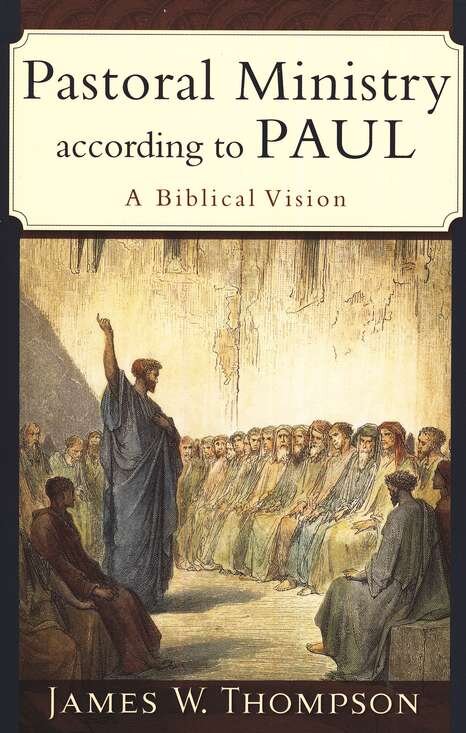Thompson, James W, Pastoral Ministry According to Paul. Baker Academic, 2006.
Referenced in: Pastoral Theology
LifeandLeadership.com Summary
This a refreshing theology that looks to the letters of Paul to discover a unifying center to guide ministry. It looks upon Paul fundamentally in pastoral terms (though admitting that Paul never uses this term to refer to himself), and shows how he was guided by a passion for God’s interests.
Thompson echoes a common refrain from his scholarly articles on the subject of pastoral theology: “The seminary curriculum does little to produce a coherent understanding of the telos of ministry,” but instead focuses on “the necessary skills for the maintenance of the church and the care of troubled people.” (10) In response to this, he offers a substantive reflection of the letters of the Apostle Paul with emphasis on the “ultimate goal of his pastoral work,” and showing “the correspondence between central theological themes and his pastoral goal.” (19) His analysis results in this thesis:
A very consistent understanding of ministry emerges in all of the letters, allowing us to define it in precise terms: ministry is participation in God’s work of transforming the community of faith until it is ‘blameless’ at the coming of Christ. The community is unfinished business, standing between its beginning at baptism and is completion at the end. Paul’s pastoral ambition, as he states consistently in his letters, is community formation. His Gentile communities now participate in Israel’s story, living between their initial adoption (or ‘election’) into that story and the final day, when they will be transfored into the image of Christ. Paul’s pastoral ambition is to participate with God in effecting the transformation of his communities.” (19-20)
In the first chapter, Thompson demonstrates how Paul expresses this pastoral vision consistently throughout his letters (e.g. Romans 15:15-17; 1 Corinthians 3:10-15; 2 Corinthians 1:12-14; 2 Corinthians 11:1-3; Galatians 2:2; Philippians 2:16-18; 1 Thessalonians 2:19-20). He shows the relationship between this thesis and the overall framework of scholarship on Pauline theology. In the remainder of the book, he traces Paul’s pastoral theme of transformation through the New Testament letters of Philippians, 1 Thessalonians, Galatians, Romans, and 1 Corinthians.
From the Publisher
What is the ultimate purpose of pastoral ministry? What emphases and priorities should take precedence? In the day-to-day emphasis on various pastoral roles and pragmatic concerns, what can sometimes get lost is the theological foundation for understanding pastoral ministry.
James Thompson is a New Testament scholar with a concern for relating biblical studies to practical ministry. Here he does a careful study of several of Paul’s epistles in order to see what Paul’s vision and purpose were for his own ministry. He finds that Paul’s aim was an ethical transformation of the communities (not just individuals) with which he worked, so that they would live lives worthy of the gospel until Christ’s return. Using this as a framework, Thompson offers suggestions for practical application to contemporary ministry.
About the Author
James W. Thompson (Ph.D., Vanderbilt University) is the Robert and Kay Onstead Distinguished Professor of Biblical Studies at Abilene Christian University. He is the author of several books, including Preaching like Paul and The Beginnings of Christian Philosophy, and coauthor of God’s Holy Fire.
***For additional information on this resource, including reviews, click the bookstore links. Check the reference at page top or the links below for resource guides on related topics.***
Related Areas
See Other Resource Guides on Pastoral Theology:
- Minister Self-Care
- Ministry Burnout, Prevening and Overcoming
- Ministry Ethics
- Ministry Support Systems
- Strengthening and Renewing the Ministry Call
- Theology of Mission and Ministry
See Resources on Over 100 Ministry Topics:


